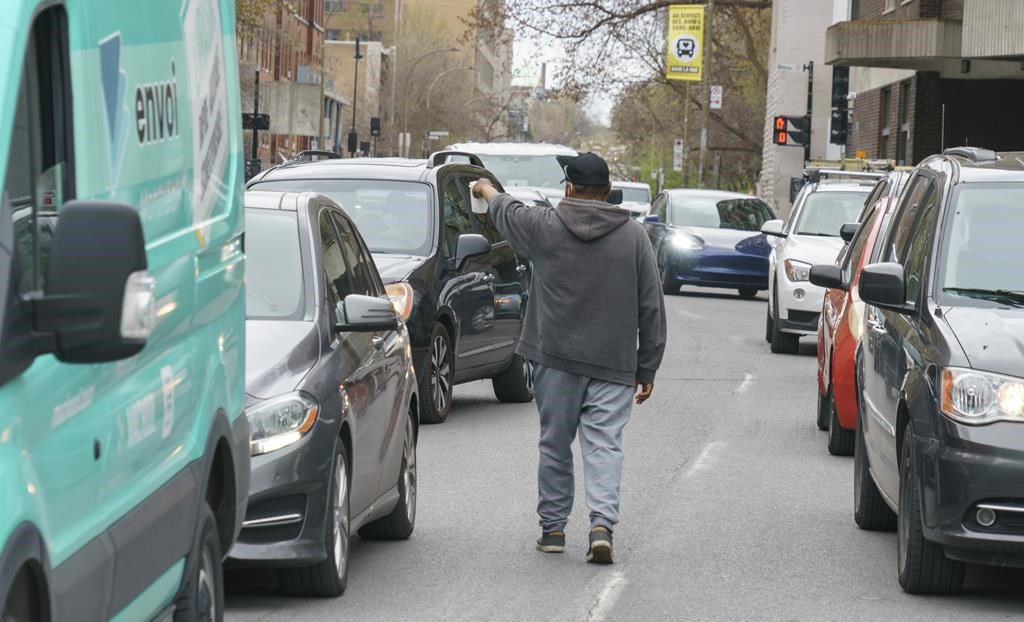An Ontario judge has invalidated portions of the province’s panhandling law as unconstitutional, including sections that prohibit requesting money from people while drunk or while they are waiting to use an ATM.
The Fair Change legal clinic filed a case in 2017 against the Safe Streets Act, which is the second legal challenge to the law in effect since 2000.
Ontario’s Progressive Conservative government passed the law at the time, following a reduction in welfare benefits by 21.6 per cent.
The law forbids aggressive solicitation and identifies six ways panhandling is considered aggressive. It also prohibits soliciting a “captive audience” at six specific locations.
Fair Change argued that the law violates various Charter rights, including freedom of expression and the right to be free from cruel and unusual punishment.
Superior Court Judge Robert Centa did not agree with all of the Fair Change arguments but decided that most of the ways the law defines aggressive solicitation infringe on the presumption of innocence, and that banning panhandling in certain locations violates freedom of expression rights.
Centa wrote in the decision that it is not necessarily true that someone asking for money while intoxicated by drugs is panhandling in a way that could likely cause concern for another person’s safety.
“I do not accept that a reasonable person would fear for their safety and security if they walked past a person who was sitting cross-legged on the ground, intoxicated by marijuana, smiling blissfully, and holding a sign that said, ‘Please spare some change so that my baby and I can get something to eat,'” he wrote.
The other challenged “aggressive” solicitation sections include obstructing someone’s path, using abusive language, and walking behind or beside someone while asking them for money.
The court upheld the broader section against soliciting in an aggressive manner while removing some of the definitions of what counts as aggressive, and threatening people with physical harm while soliciting.
Centa also upheld a ban on walking onto a street to ask drivers for money but struck down the other ways the law defines soliciting a “captive audience,” including where people are waiting to use an ATM.
“The mere presence of a homeless person soliciting gifts from persons doing certain things at a prohibited site does not, on its own and without more, pose any danger or impediment to the safe use of public space,” Centa wrote.
“Soliciting is of fundamental importance to persons in need and has a real social value. Even if the presence of persons soliciting is annoying or even offensive, a blanket ban on all solicitations is not a proportional limit on freedom of expression.”
The other removed “captive audience” provisions include someone waiting to use a pay telephone, someone waiting for a taxi or public transit, and someone who is on public transit.
The Canadian Civil Liberties Association said it is a significant victory in the fight against the law’s limits on the ability of poor people to ask their fellow citizens for help.
Harini Sivalingam, the CCLA’s director of the equality program, stated that the decision confirms that the Safe Streets Act unlawfully limits the freedom of homeless and low-income individuals who depend on public donations to survive and maintain their dignity.
Breaking the law can result in a fine of up to $500 for the initial offence, and a fine of up to $1,000 or a maximum of six months in prison for subsequent offences.
Fair Change’s arguments referenced a 2011 research paper that revealed the Toronto Police Service issued 67,388 tickets under the Safe Streets Act from 2000 to 2010, amounting to over $4 million. However, only $8,086.56 was actually collected, according to Fair Change.



